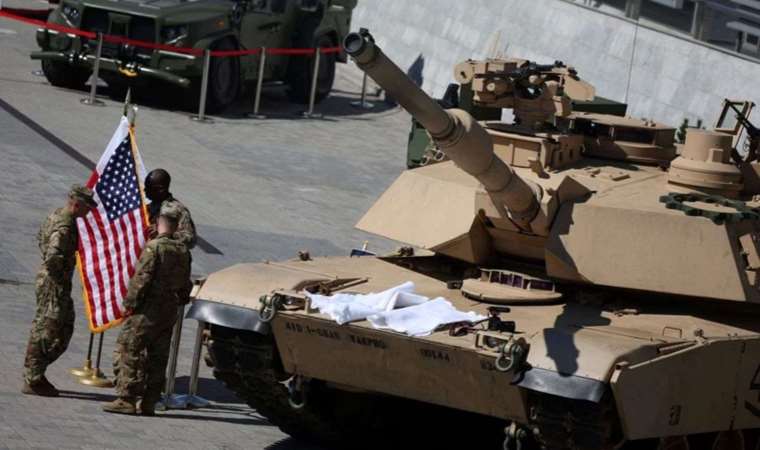According to one official, the aid package's value will range between $240 million and $375 million, contingent on its final contents, which were still under consideration at the time of the report. The White House had not yet responded to requests for comment.
This move follows the UK's previous shipment of depleted uranium munitions to Ukraine earlier this year, but it is the first such shipment from the United States and is likely to generate controversy. It comes on the heels of the Biden administration's decision to supply cluster munitions to Ukraine, raising concerns about the risks these weapons pose to civilians.
The use of depleted uranium munitions has long sparked debate, with opponents, including the International Coalition to Ban Uranium Weapons, citing potential health risks from inhaling or ingesting depleted uranium dust, such as cancer and birth defects.
Depleted uranium, a by-product of uranium enrichment, is employed in ammunition due to its extreme density, which enables rounds to easily penetrate armor plating and self-ignite, creating a searing cloud of dust and metal.
Although depleted uranium is radioactive, its radioactivity is significantly lower than that of naturally occurring uranium. However, radioactive particles can persist in the environment for an extended period.
The United States extensively used depleted uranium munitions in the Gulf Wars of 1990 and 2003, as well as in the NATO bombing of former Yugoslavia in 1999. The International Atomic Energy Agency, the UN nuclear watchdog, has stated that studies in regions like former Yugoslavia, Kuwait, Iraq, and Lebanon have shown that depleted uranium residues dispersed in the environment do not pose a radiological hazard to affected populations.
Nonetheless, the presence of radioactive material could compound Ukraine's already formidable post-war cleanup efforts, with parts of the country contaminated by unexploded ordnance, cluster bombs, munitions, and hundreds of thousands of anti-personnel mines.
The Wall Street Journal had reported in June the U.S.'s contemplation of sending depleted uranium rounds to Ukraine. Past weapons aid packages for Ukraine included artillery, air defense missiles, and ground vehicles, as the nation continues its counteroffensive.
The funding authorization for this aid package falls under the Presidential Drawdown Authority, granting the president the authority to transfer articles and services from U.S. stocks during an emergency without requiring congressional approval. The materials will be drawn from U.S. excess inventory.
Since the full-scale Russian invasion in February 2022, security assistance to Ukraine has exceeded $43 billion.















